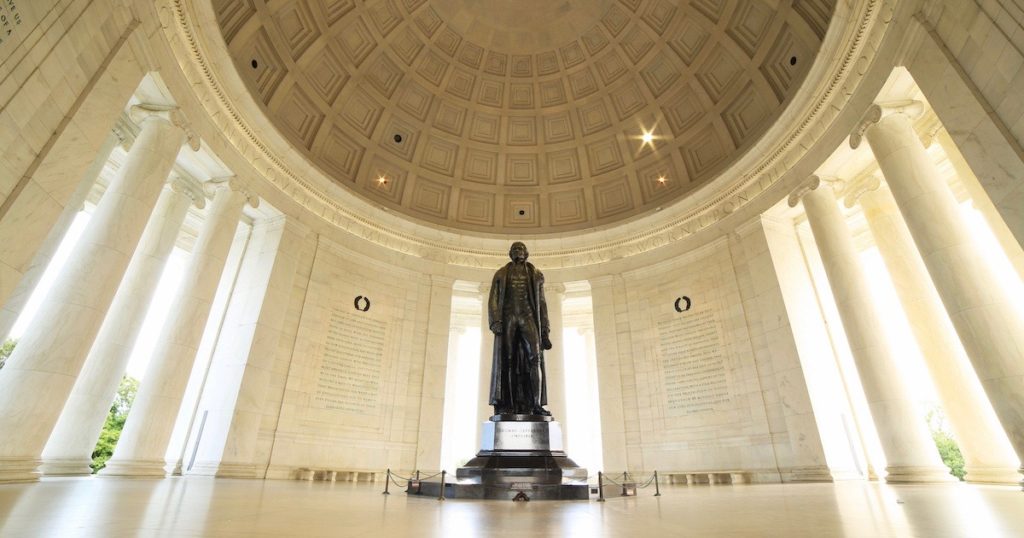 Faith & Science
Faith & Science
 Intelligent Design
Intelligent Design
Human Rights and the Image of God

Editor’s note: Nancy Pearcey is one of several Discovery Institute Fellows featured in the Museum of the Bible’s yearlong exhibit on “Scripture and Science: Our Universe, Ourselves, Our Place” in Washington, DC. Pearcey was asked to address the topic of the image of God and how it answers the questions, “What makes me human?” and “What we can accomplish?” You can watch an edited version of her comments on the Museum of the Bible’s Vimeo channel. Since the exhibit could feature only short segments of Pearcey’s recorded comments, Evolution News invited her to offer her full comments in a series here for our readers. This is Part 2 in the series. Look here for Part 1. Pearcey is a professor and scholar in residence at Houston Christian University. Her comments are adapted from her books The Soul of Science, Love Thy Body, and The Toxic War on Masculinity.
The image of God is the basis for universal human rights. Westerners tend to take the concept of equality for granted — the idea that no matter their sex, their class, or their place of origin, all people have equal value. It’s become like the wallpaper that forms a backdrop to our thinking, and we no longer even recognize where it came from. Tom Holland, who is British, writes, “That we are all of us possessed of certain fundamental rights, simply by virtue of being human, and of a dignity that embraces our entire species, are doctrines so widely accepted in contemporary Britain [and America] that many of us barely recognise them as doctrines at all.”
Yet most cultures throughout human history have not taught human equality. Historically, the idea was derived from the Bible. It teaches that all humanity is created in God’s image — which is amazing for such an ancient document.
The Declaration of Independence
This biblical vision is enshrined in the American Declaration of Independence: “We hold these truths to be self-evident, that all men are created equal, that they are endowed by their Creator with certain unalienable Rights.”
Where did the writers of the Declaration get the phrase “inalienable rights”? They borrowed it from the dissenting churches back in England — people like the Puritans who broke away from the state (Anglican) church. The Puritans argued explicitly that because God made humans in his image, the state has no right to compel people to adhere to any religion. In the Confession of Faith of 1612, Puritans living in Amsterdam wrote, “That as God created all men according to his image … the magistrate is not to force or compel men to this or that form of religion, or doctrine but to leave Christian religion free, to every man’s conscience.”
In the 19th century, the French political thinker Alexis de Tocqueville visited America. In his book Democracy in America, he argued that “the profound geniuses of Rome and Greece” did not come up with the idea of equal rights; instead it was Christianity that gave us the idea that “all members of the human species are naturally alike and equal.”
Even many atheists acknowledge the biblical origin of human rights. Perhaps the best-known atheist of the 19th century was the German philosopher Friedrich Nietzsche. In The Will to Power, he said, “The Christian concept of the ‘equality of souls before God’ is the prototype of all theories of equal rights.”
The Struggle for Existence
The American philosopher Richard Rorty, also an atheist, said that in the Darwinian struggle for existence, the strong win out, while the weak are left behind; so Darwinism cannot be the source of universal human rights. Instead, Rorty says, the concept came from “religious claims that human beings are made in the image of God.”
Rorty even said he himself had to borrow the concept of equal rights from the “Jewish and Christian element in our tradition.” He called himself a “free-loading” atheist — meaning that he “free-loads” the concept of human rights from the Bible.
Finally, the atheist philosopher Luc Ferry says “Christianity is the first universalist ethos.” In his words, “According to Christianity, we were all ‘brothers,’ on the same level as creatures of God.” Even atheists recognize that democracy can be defended only by the biblical concept that all humans are in the image of God and thus share a common human nature.
Tomorrow, “Slavery and the Image of God.”
